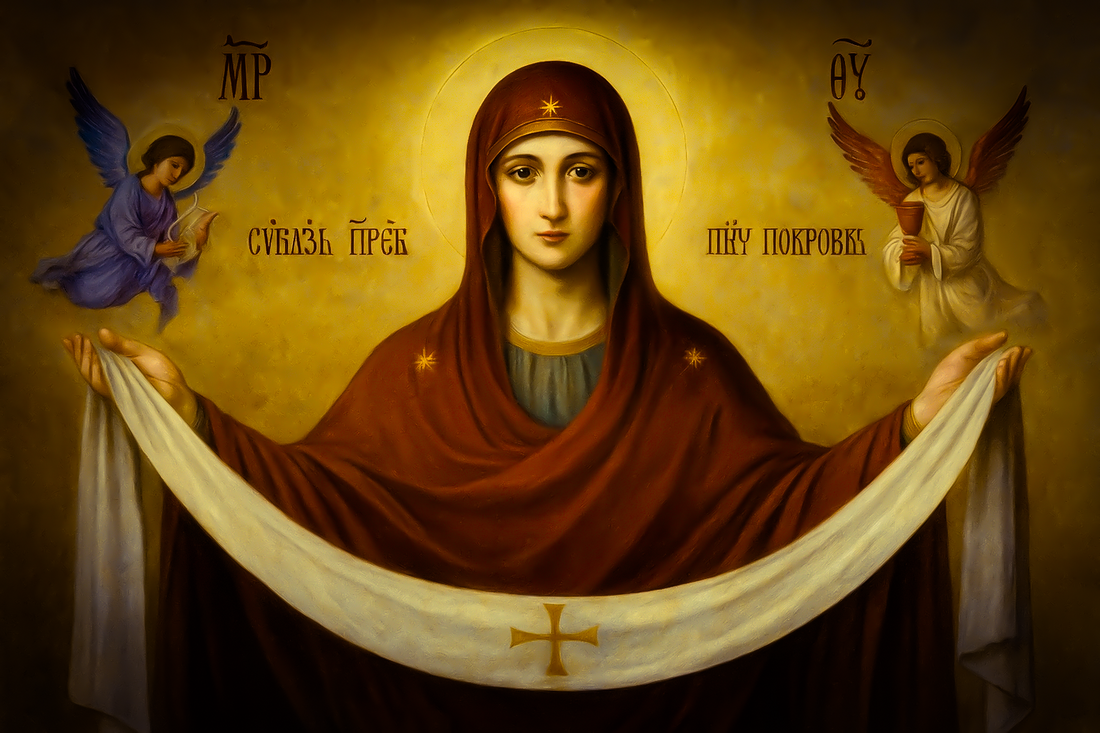
Prostatia - Inspiration Behind The Name
The Theology, Etymology, and Brand Choice Behind Our Name - Prostatia
“A name is a small liturgy: a few syllables in which a whole world stands.”
Welcome. If you’ve ever wondered why our house is called Prostatia, you’re in the right place. This is the story of a word that holds prayer and craft together—of guardianship, beauty, and the quiet strength that stands before those it loves.
1) The Heart of the Word: What “Prostatia” Means
Prostatia draws from the Greek family of words built on the stem προστα- (prosta-), which communicates protection, patronage, and advocacy. In classical and ecclesial Greek you’ll meet:
· προστάτης (prostatēs) — a protector, patron, advocate; literally, one who stands before another.
· προστασία (prostasía) — protection, guardianship, defense.
At the root is the sense of standing in front—not to obscure, but to shelter; not to dominate, but to defend. It is the stance of a guardian at the threshold, a mother’s mantle, an angel at the gate.
In plain terms: Prostatia means protection or patron —the kind that stands before you with love and resolve through your Patron.
2) The Sacred Resonance: Holy Protection in Christian Memory
In the Christian East, the theme of divine protection is not abstract; it is sung, painted, and celebrated. The Protection of the Theotokos—often called the Holy Protection—honors the intercession of the Virgin Mary over the faithful. Icons of this feast depict the Mother of God spreading her veil (maphorion - See Image Above) over the Church: a visual theology of safekeeping and mercy.
This is the mood that animates our name. To wear Prostatia is to carry a small confession: I am under a shelter that is both strong and profound.
3) Why We Say Prostatia and Not Prostasia
Let’s be direct.
· Academic transliteration of the Greek noun προστασία is typically Prostasia. That’s the tidy, literal path from Greek letters to Latin letters.
· Our brand name is Prostatia—a deliberate, stylistic Latinizing of the sound that keeps the meaning intact while serving clarity, memorability, and aesthetic strength.
Here’s what guided our choice:
a) Clarity in English pronunciation
Many English speakers stumble over -sia endings (is it pro-STA-see-uh? pro-STA-zhuh?). Prostatia resolves this to a clear, dignified cadence: pro-sta-TEE-uh.
b) A timeless ecclesial register
Across centuries, Greek sacred terms entering Western usage often adopt a Latin-leaning shape (think Ekklēsia → Ecclesia). We echo that tone.
c) Brand distinctiveness and semantic hygiene
In the modern marketplace, Prostasia overlaps with unrelated entities and associations. Prostatia gives us clean signal.
d) Phonetic architecture
The consonant frame pro–stat–ia reads like stonework. It suggests poise, guardianship, and structure.
4) Etymological Notes
· Prefix — προ- (pro-): “before,” “in front of,” “on behalf of.”
· Stem — στα-/στατ- (sta-/stat-): linked to the ancient verb ἵστημι (histēmi), “to stand, to set.”
· Noun — προστασία (prostasía): the state or act of protective standing—guardianship.
5) The Theology of Protection, Worn
Jewelry is the most intimate architecture you carry. When it bears an icon, a cross, or a saint’s story, it becomes a portable liturgy—a quiet appeal for help, a reminder of courage, a pledge of care.
6) Pronunciation & Quick Guide
· Prostatia: PRO-sta-TEE-uh
· Meaning: protection, guardianship, advocacy; “to stand before in love.”
· Reference: inspired by Greek προστασία and προστάτης (protector/patron).
7) FAQ
Q: Is “Prostatia” a misspelling?
A: No. It’s a brand Latinization of the Greek concept προστασία.
Q: Why not “Prostasia”?
A: Prostatia is clearer, stronger, and avoids unrelated associations.
8) Closing
A name should earn its keep. Prostatia reminds us why we make what we make: veneration, beauty, shelter, and promise.




